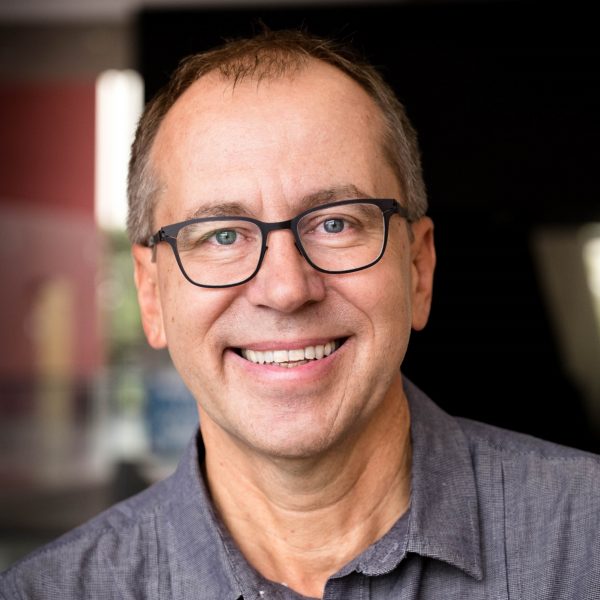
Thomas Lemke
studied Political Science, Sociology and Law in Frankfurt am Main, Southampton and Paris. He is Professor of Sociology with a focus on “Biotechnology, Nature and Society” at the Faculty of Social Sciences of the Goethe University Frankfurt. Since 2014, he has also been Honorary Professor at the University of New South Wales in Sydney. In 2018, he received an Advanced Grant of the European Research Council (ERC) for a research project on the social and cultural impacts of cryobiology. Lemke’s research interests include social and political theory, biopolitics, new materialisms, and social studies of genetic and reproductive technologies.
Publications
Core Publications
Barla, J., Kluzik, V., & Lemke, T. (eds.) (2022). Biokapital. Beiträge zur Kritik der politischen Ökonomie des Lebens. Frankfurt/Main: Campus.
Hoppe, K. & Lemke, T. (2021). Neue Materialismen zur Einführung. Hamburg: Junius.
Lemke, T. (2021). The Government of Things. Foucault and the New Materialisms. New York: New York University Press.
Lemke, T. (2019). Foucault’s Analysis of Modern Governmentality. A Critique of Political Reason. Translated by Erik Butler, London and New York: Verso.
Lemke, T. (2019). Beyond Life and Death. Investigating Cryopreservation Practices in Contemporary Societies. Soziologie, 48 (4), 450–466.
Bauer, S., Heinemann, T., & Lemke, T. (eds.) (2017). Science and Technology Studies. Klassische Positionen und aktuelle Perspektiven. Berlin: Suhrkamp.
Dionisius, S., Larsen, L. T., & Lemke, T. (eds.) (2015). Mapping Reproduction. Special Issue of Distinktion: Scandinavian Journal of Social Theory, 16 (3).
Lemke, T. & Liebsch, K. (Hg.) (2015). Die Regierung der Gene. Diskriminierung und Verantwortung im Kontext genetischen Wissens. Wiesbaden: VS Verlag.
Heinemann, T., Helén, I., Lemke, T., Naue, U., & Weiss, M. G. (eds.) (2015). Suspect Families. DNA Analysis, Family Reunification and Immigration Policies. Farnham: Ashgate.
Folkers, A., & Lemke, T. (eds.) (2014). Biopolitik. Ein Reader. Berlin: Suhrkamp.
Lemke, T. (2013). Die Natur in der Soziologie. Gesellschaftliche Voraussetzungen und Folgen biotechnologischen Wissens. Frankfurt am Main/New York: Campus.
Lemke, T. (2013). Perspectives on Genetic Discrimination. New York/London: Routledge.
Lemke, T. (2007, 2013). Biopolitik zur Einführung. Hamburg: Junius Verlag.
Most recent
Braun, V., Lafuente Funes, S., Lemke, T., & Liburkina, R. (2023). Making Futures by Freezing Life: Ambivalent Temporalities of Cryopreservation Practices. Special Issue of Science, Technology & Human Values, 48 (3).
Lemke, T. (2022). Cryopreserving the present? The climate crisis and the emergence of a politics of suspension. Studia Krytyczne/Critical Studies, 10, 55-62.
Lemke, T. (2022). Conceptualising Suspended Life: From Latency to Liminality. Theory, Culture & Society, 40 (6), S. 69–86.
Lemke, T. (2022). Governare il milieu. Per una biopolitica più-che-umana. In: Roberto Esposito (ed.), Almanocco di Filosofia e Politica 4: Sull’evento. Filosofia, storia, biopolitica, Macerata: Quodlibet, 49–67.
Lemke, T. (2021). Welcome to Whenever. Exploring Suspended Life in Cryopreservation Practices. Science, Technology, & Human Values, 48 (4).
Research
Suspended Life: Exploring Cryopreservation Practices in Contemporary Societies (CRYOSOCIETIES) (1 April 2019 – 31 March 2025, Advanced Grant, European Research Council, Grant No. 788196, Team Members: Prof. Dr. Thomas Lemke (PI), Veit Braun, Dr. Sara Lafuente, Ruzana Liburkina, Finja Filzinger, Alessandro Fischer Capote)
Cryopreservation practices are an essential dimension of contemporary life sciences. They make possible the freezing and storage of cells, tissues and other organic materials at very low temperatures and the subsequent thawing of these at a future date without apparent loss of vitality. Although cryotechnologies are fundamental to reproductive technologies, regenerative medicine, transplantation surgery and conservation biology, they have largely escaped scholarly attention in science and technology studies, anthropology and sociology.
CRYOSOCIETIES explores the crucial role of cryopreservation in affecting temporalities and the concept of life. The project is based on the thesis that in contemporary societies, cryopreservation practices bring into existence a new form of life: “suspended life”. “Suspended life” enables vital processes to be kept in a liminal state in which biological substances are neither fully alive nor dead. CRYOSOCIETIES generates profound empirical knowledge about the creation of “suspended life” through three ethnographic studies that investigate various sites of cryopreservation. A fourth subproject develops a complex theoretical framework in order to grasp the temporal and spatial regimes of the different cryopractices.
Research Training Group “Fixing Futures. Technologies of Anticipation in Contemporary Societies” (1 May 2023 – 31 August 2028, Research Training Group, German Research Foundation, Principal Investigators: Prof. Dr. Thomas Lemke (Speaker), Prof. Dr. Gisela Welz (Co-Speaker), Dr. Josef Barla, Prof. Dr. Marc Boeckler, Prof. Dr. Martina Klausner, Prof. Dr. Peter Lindner, Prof. Dr. Lizzie Richardson, Prof. Dr. Thomas Scheffer)
The RTG considers the interplay of practices of ‘stabilisation’ and ‘repair’ as indicators of ‘technologies of anticipation’ – that is, socio-material orderings and temporal orientations that have the capacity to define entire domains of knowledge, forms of social organisation, or even societies as a whole. Tied to a politics of temporality and affect, technologies of anticipation not only aim to identify and imagine future trajectories but also to arrange or accommodate what is yet to come. The RTG, therefore, examines how such technologies are organised, materialised, mobilised, and – equally important – how they are criticised and contested. It further attends to the power asymmetries and operational tensions involved in the enactment of anticipatory practices to inquire what forms of life are to be protected, enhanced, or saved (and which are excluded, marginalised, or destroyed).
Building on recent scholarship in STS, the RTG seeks both to inform societal debates with robust research-driven knowledge and to contribute to contemporary scientific discussions on future-making in sociology, cultural anthropology, human geography, and beyond. The RTG strengthens and extends existing forms of cooperation such as the STS Master’s Programme ‘Economies, Governance, Life’, and The Lab for Studies in Science and Technology (LaSST) at Goethe University Frankfurt. Given the distinctive profile of the interdisciplinary faculty and the innovative study programme, the RTG will prepare early career researchers for a wide range of professional careers in the academic field and beyond.